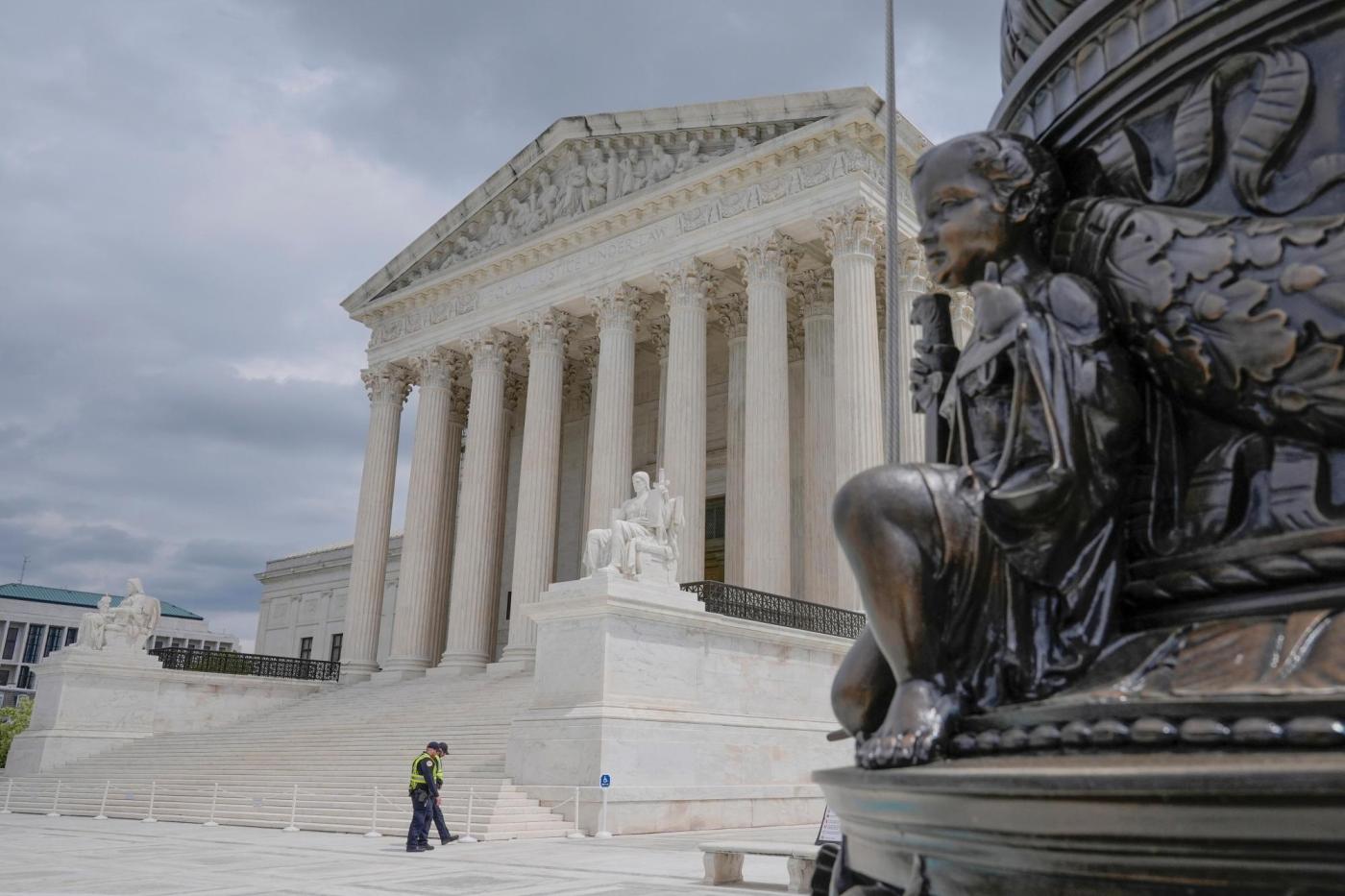
Supreme Court finds no bias against Black voters in a South Carolina congressional district
By MARK SHERMAN (Associated Press)
WASHINGTON (AP) — The Supreme Court on Thursday preserved a Republican-held South Carolina congressional district, rejecting a lower-court ruling that said the district discriminated against Black voters.
The court’s conservative majority said in a 6-3 decision that the Republican-controlled state legislature did nothing wrong during redistricting when it strengthened Rep. Nancy Mace’s hold on the coastal district by moving 30,000 Democratic-leaning Black residents of Charleston out of the district.
In dissent, the liberal justices said the ruling would “impede racial gerrymandering cases generally.”
The state argued that partisan politics, not race, and a population boom in coastal areas explain the congressional map. Moving voters based on their politics is OK, the Supreme Court has held.
A lower court had ordered South Carolina to redraw the district after it found that the state used race as a proxy for partisan affiliation in violation of the equal protection clause of the 14th Amendment to the Constitution. But that court had put its order on hold and had already allowed the state to use the challenged map in the 2024 elections.
Justice Samuel Alito, writing for the court, criticized lower-court judges for their “misguided approach” that refused to presume that lawmakers acted in good faith and gave too much credit to the challengers.
Alito wrote that one weakness of the Black voters’ case was that they did not produce an alternative map, which he called an “implicit concession” that they couldn’t have drawn one. “The District Court’s conclusions are clearly erroneous because it did not follow this basic logic,” he wrote.
Justice Elena Kagan, writing for the three liberals, said her conservative colleagues ignored the work of the lower court that found the district had been gerrymandered by race.
“Perhaps most dispiriting,” Kagan wrote, the court adopted “special rules to specially disadvantage suits to remedy race-based redistricting.”
When Mace first won election in 2020, she edged Democratic incumbent Rep. Joe Cunningham by 1%, under 5,400 votes. In 2022, following redistricting driven by the 2020 census results, Mace won reelection by 14%. She is among eight Republicans who voted in October to oust Kevin McCarthy, R-Calif., as House speaker.
The case differed from one in Alabama in which the court ruled last year that Republican lawmakers diluted Black voters’ political power under the landmark Voting Rights Act by drawing just one district with a majority Black population. The court’s decision led to a new map with a second district where Democratic-leaning Black voters comprise a substantial portion of the electorate.
In South Carolina, Black voters wouldn’t have been as numerous in a redrawn district. But combined with a substantial set of Democratic-leaning white voters, Democrats might have been competitive in the reconfigured district.
The high court left open one part of the case about whether the map intentionally sought to dilute the votes of Black residents.
___
Follow the AP’s coverage of the U.S. Supreme Court at https://apnews.com/hub/us-supreme-court.


